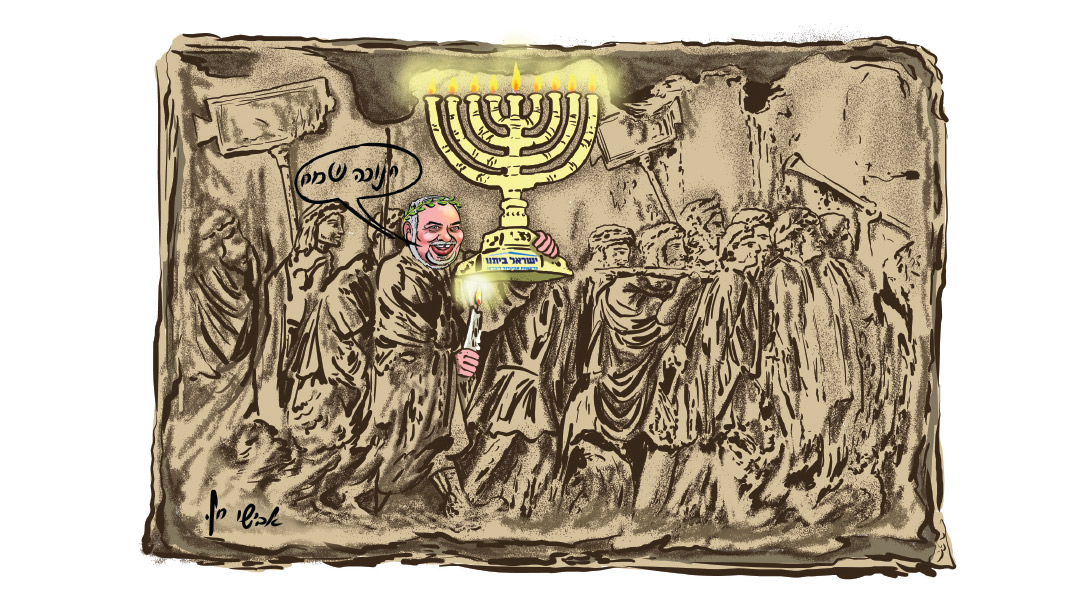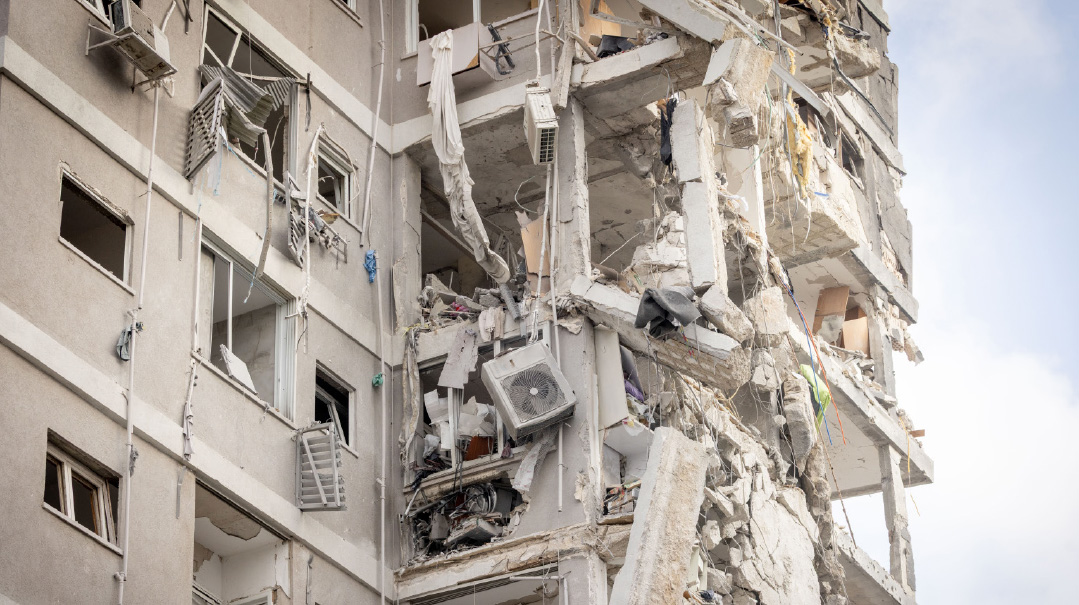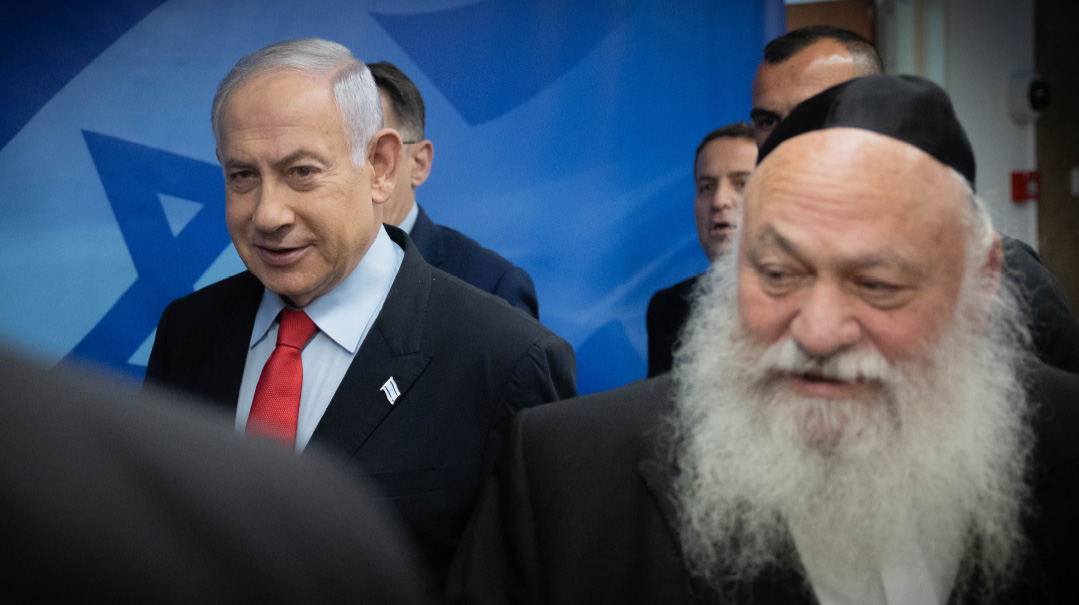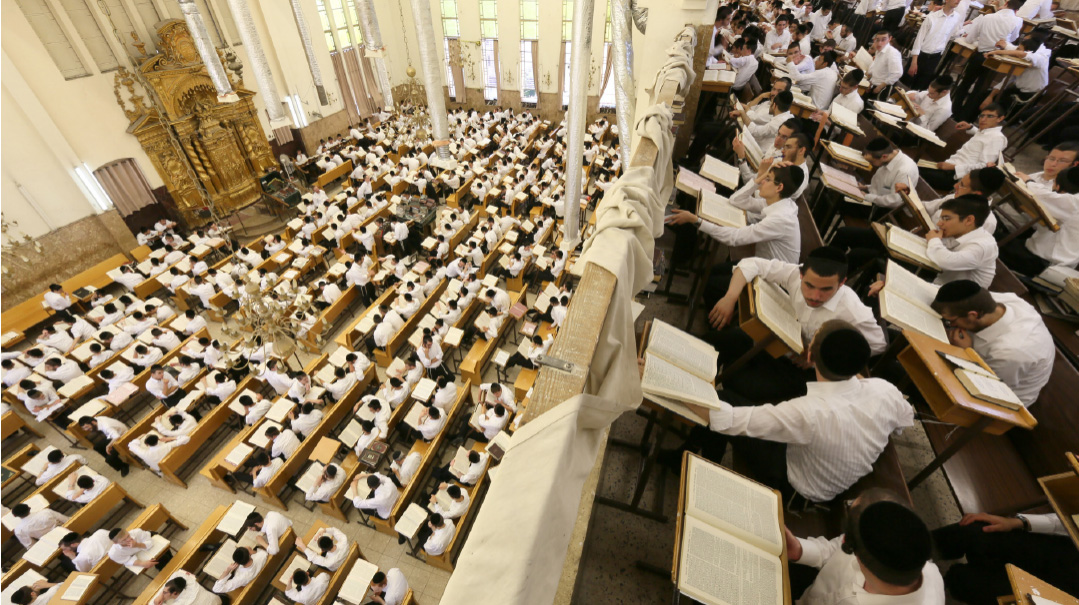To Bibi or Not to Bibi


When pundits describe your country’s first election as a crisis, and the second as an apocalypse, what does that make the third?
Israel’s headline writers have wrestled with this problem, and settled on one rich Yiddish word to sum up the whole mess. “Plonter” — meaning tangle — is now an almost universal term for the situation that Donald Trump described as, “They keep having elections and no one is elected.”
For a sense of where all this is headed, a series of unconnected recent encounters in the Knesset shed light on the dynamics involving Bibi, his opponents, and the chareidi parties.
A Problem Called Bibi
The 24th Knesset ceremony in memory of Yitzhak Rabin this November, as viewed from the visitors’ gallery, was like an ancient history program.
Grandees of the left like Ehud Olmert and a raft of foreign diplomats watched as Bibi Netanyahu, who was opposition leader a quarter-century ago, defended himself against accusations that he contributed back then to the pre-assassination incitement. (“I said Rabin was wrong, not a traitor.”) Amir Peretz, who came out of retirement this year to save Israel’s left, recalled the “vision of peace” that gripped him when he voted for the Oslo deal in 1993.
The toxic atmosphere and ad hominem attacks against Bibi were eye-opening in two ways relevant to the current crisis. With many onlookers too young to remember the event, it was a reminder that Bibi hasn’t been in power for a decade, as people think; he’s been in and out of power for a quarter-century. And like it or not, he’s indelibly linked to the battle against Oslo, which, for many on the left, makes him a hated figure.
Taken together, it may be time to listen when Gideon Saar, who just lost to Netanyahu in a Likud primary, says Bibi himself is the problem. Having alienated so many ex-colleagues like Moshe Yaalon, and with his Oslo baggage preventing left-wingers such as Amir Peretz from joining him in a coalition, perhaps someone with a less divisive personality would be able to build a coalition with the same raw materials? Bibi has one more chance before someone else gets the opportunity to test this hypothesis.
The Lieberman Show
A few weeks after Bibi’s showdown with Rabin’s legacy, this correspondent was witness to one of the great media events of the age: an Avigdor Lieberman press conference. The man with the heavy Russian accent who brought down Netanyahu’s last functioning government holds eight seats, which make him the kingmaker between the right-wing and left-wing blocs — and he’s enjoying the attention.
Ten minutes before it started, there was already no room to swing a camera, as perhaps 50 print, radio, and TV correspondents crowded the small room. When the great man himself strode in (preceded by a party hack with an uncanny resemblance to his boss), the sound of massed shutter lenses going into action sounded like an autumn rain shower.
But beyond the fact that he managed to blame the right and left, Arabs and chareidim, for Israel’s political deadlock, painting himself in angelic terms, two things stood out.
Lieberman is rightly accused of being a political chameleon, but as he explained the principled reasons behind his refusal to join the coalitions on offer, he came across as genuine.
“We could have gotten any cabinet posts we’d wanted, but we’re here to change things, to allow public transport on Shabbat, remove the Rabbanut’s monopoly on conversion and kashrut,” he said. And in a backhanded compliment to the chareidi parties, he explained the current deadlock: “Just like I can’t compromise on these values, the chareidi parties won’t compromise on theirs as well.”
The Yisrael Beiteinu leader has spent the best part of a year saying some vile things about religious Jews, comparing them to Hamas and accusing them of leeching off regular Israelis. But when he leaves the mud-slinging and talks about religious liberalization — a core issue for his religious constituency — there’s a ring of sincerity that is not hard to imagine will talk to his voters. Lieberman’s electoral base of five seats in the Russian-speaking sector is rock solid, and to this he’s added three seats of voters drawn by his talk of religious liberalization. Give or take a seat, it’s safe to assume that he will still occupy that kingmaker spot after the next election.
Here We Go Again
So how will a third election change blocs that look set in stone? Sitting around a table laid with lilac cloth and wine glasses in the MKs’ dining room (a far cry from the plebeians’ canteen down the hall), Degel HaTorah MK Uri Maklev was honest.
“It’s another throw of the dice,” he admitted. “Each election, a different combination comes up. No one knows what will happen with Avodah-Gesher on the left, for example, whether they fail to pass the electoral threshold.”
But if Israeli politics has been reduced to a national gambling exercise, Maklev is clear where the blame belongs. “This is definitely an attempt to bring down a successful leader via the legal system. It wouldn’t happen in any other country.”
It’s that love-him-or-hate-him attitude that explains why for the third time in one year, and after a quarter-century, Israeli voters are still deciding: to Bibi or not to Bibi — that is the question.
Overheard in the Knesset
The story goes that when the Ponevezher Rav was asked why he didn’t stand for the Knesset to secure funding for Israeli yeshivos, he unexpectedly responded: “I’m not rich enough.”
Asked why money was a factor, he explained that given the anti-Torah views regularly declaimed in the Knesset, he would have to tear kri'ah on a regular basis.
“I can’t afford all those shirts,” he quipped.
Courtesy of Messrs. Lieberman and Lapid, the Knesset has recently had its fair share of anti-religious speechifying, but a recent heartwarming incident provided a counterweight to all the bluster.
A few weeks ago, when depositing my security tag as I exited the complex, I noticed a member of the Knesset Guard, an officer with a kippah on his head behind a glass window in one of the booths. At this quiet hour, the body scanners and X-ray machines were silent, and he was relaxing. But the man wasn’t flicking through the news or messaging his friends; he was occupying himself by… putting tzitzis on a new tallis.
And with so many religious staff in the building, there’s plenty more religious life if you know where to look for it. As the VIPs and politicians left the Rabin memorial event (see main story), I heard a cry of “Minchah! Minchah!” from a complex of offices. Following someone down a corridor, I found myself in the room used by the ushers when off-duty. The walls were decorated with pictures of Knesset security on the pistol range, as well as a large screen where two guards had finished playing a video soccer game. The besuited officials who just a few minutes earlier had been keeping decorum in Israel’s parliament were now on to the next thing: “Ashrei!” called out one, and the guards went from playing to praying.
(Originally featured in Mishpacha, Issue 792)
Oops! We could not locate your form.













